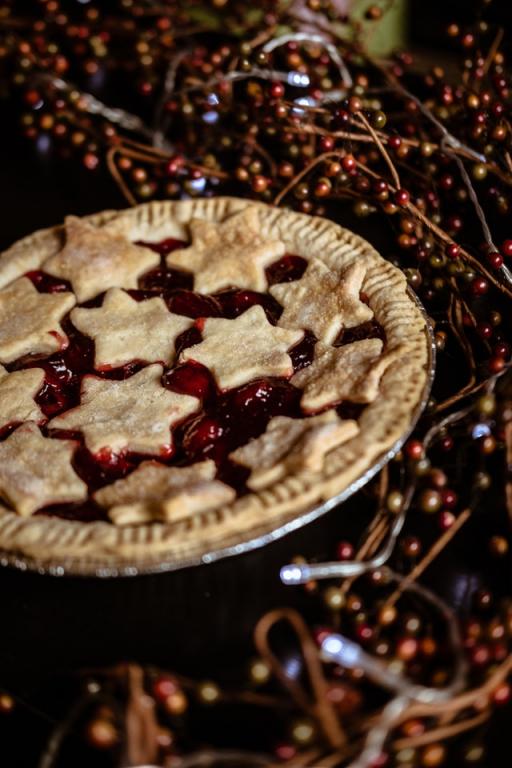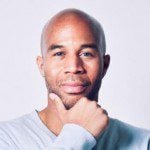I’ve had the privilege of knowing Shawn McGuffey since college– which means I’ve had the privilege of sharing the dance floor with him on a few occasions. And if you’ve ever seen him move you — you know you can’t keep him down. He has shared guest posts here a few times, and when he says “I wrote something, and I wondered if you might want to share it,” I say yes without even reading it first. Always happy to share my dance space with this scholar, dancer, activist and friend.
Guest Post: Dr. C. Shawn McGuffey
I thought I had prepared myself well. It just made sense that it would eventually happen. Still, I was surprised by my surprise when the doctor said: “The cancer has progressed aggressively. We need to think about treatment options while you still have them.”
Without skipping a beat, I pulled up my calendar on my smartphone and started to explain how busy this year was going to be, including research trips to Ghana and, if possible, Rwanda right before Christmas. I tried officiously to find a time block to fit in treatment, even though I had no idea what treatment would involve. All I knew was that I had plans that cancer needed to accommodate.
As I explained to my doctor that I had to make a trip to L.A. in late June because I refused to miss my step-daughter’s 26th birthday, he gently took the phone from my hands and said something to the effect of: “Shawn, I know this is hard. And I know this is your way of trying to manage, but your life is about to change drastically. And while we can figure out treatment options, waiting is no longer one of them. You have cancer and when cancer comes, cancer doesn’t wait.”
It was then that the weight of the word “cancer” finally bruised me. I felt it heavy on my heart, lumbering under my skin and laden in my spirit. Tears welled, but they didn’t fall. I had too much to do. And wallowing would slow me down. Looking back, I should have allowed myself to wallow. Even if just for a day.

My partner was the first to know. My mother needed to be second. Wanting to tell her in person, I scheduled a flight to Kentucky. I thought the space between knowing treatment would start and flying to Kentucky would give me a chance to breathe. I was wrong. The anticipation of telling my mother was suffocating; especially when I considered her own trials with cancer. Her father and, more recently, her husband–my grandfather and my father– had both died within three months of being diagnosed with cancer.
Before I even made it home to Kentucky, I received a call from mom that grandmother’s kidneys were failing and I needed to come immediately. The backdrop of grandmother’s health made telling mother seem that much more cruel. Seeing my mother cry as the words “I have cancer” staggered from my reluctant lips was one of the most agonizing days of my life. My first treatment was four weeks later.
The first two months of my six-month treatment were the most brutal. I was constantly nauseous and could barely keep food down. My body ached all over. And I was never without pain–it was always a matter of how much.
The most pain came soon after my first emergency room visit in July. Even though that hospital stay was physically excruciating, it did not compare to what came just days later: my relationship with the person I thought I’d spend my life with ended unexpectedly (and, honestly, embarrassingly). I have neither the words nor the sentence structure to express that kind of heart and soul ache, so I’ll just leave it at that. But I do know that looking down and not seeing the ring on my finger still feels unnatural.
Surviving cancer, however, is a many storied journey: and pain and sorrow are not the leading characters in mine.
This journey has taught me to slow down, to take deeper breathes, and to appreciate stillness in novel ways. I’ve come to notice that in the U.S., we tend to reward trauma narratives that have happy endings and that underscore personal fortitude. Survivors that tell exultant and resilient stories like mine are valorized; while victims that tell difficult, unsettled stories are often blamed, ignored, or pathologized.
But my cancer story is no more important or worthy than those that ended differently, either in disposition or in death. I have been abundantly blessed with both strong personal ties, and a personality that bends towards hopefulness. And I do not have young children living at home– I may have navigated my illness differently if I did. Also, I recognize that my cancer journey has been largely shaped by both economic and regional privileges. Being able to afford top-notch healthcare and living in a state with arguably the best healthcare system in the nation has been foundational to the quality of my survivorship.
Maybe that’s why the cancer story I recount here, even with its pain and heartache, is one of finding everyday joy in small spaces.
I am stubbornly independent and, to some, surprisingly introverted considering I am often the first and last person on the dance floor. Allowing others to care for me has always been a challenge. So not only was I in physical pain, but it also pained me emotionally to depend upon neighbors and friends to prepare my food and to walk my beloved dog several times a day. And I can think of few things more humbling than vomiting and simultaneously urinating on yourself, and then needing someone else to clean up the mess. However, these experiences deepened the decade-long work I’d been doing in therapy, learning to let go of frustration over circumstances I could not control. I learned to embrace vulnerability in new, empowering ways. I realized that I did not have to be strong all the time. And I slowly came to realize that allowing others to care for me didn’t take any dignity from me. Rather, it allowed me to further empathize with those in need. It expanded my capacity to love.
My journey has led to new communities. One of my most cherished moments happened when I was being too ambitious after one of my early treatments and I attempted to walk my dog, Simba, around the park. When I was limping and winded, a group of elder Vietnamese women sat me down on a bench. Despite the language barrier, I understood enough that they wanted me to sit and rest while they walked Simba.
On another occasion I made it to the park and unleashed Simba to play while I rested. Simba refused to leave my side. He just alternated between lying beside me and leaning against me. A Cape Verdean family approached and I hesitantly explained my predicament. While the parents stayed and talked to me, their two kids coaxed Simba into some play and even picked up after him when he used the bathroom. Y’all, when strangers willingly dispose of your 88lb dog’s excrement without asking, you know you’ve made a connection. These old neighbors are now new friends. And these new friends now help me organize a monthly food drive for the growing homeless population in our neighborhood.
I also revived my joy of baking pies! I still remember the first day I had the strength to attempt a baking project. It was August 14th and I went all out and made a cherry pie. If you’ve never made a homemade cherry pie let me tell you– it’s a lot work pitting all those cherries by hand. But it sure was good to feel the dough between my fingers, and the act of creating something filled me with so much joy. I haven’t stopped baking fresh, succulent fruit pies since. I even have a little side hustle now making pies. Letting go and slowing down helped reinvigorate this passion.
As a goal-motivated person, it was good for me to have aims outside of recovery. I continued to do as much work and civic engagement during treatment as possible. It helped me feel productive and distracted me from the continuous pain. While I am not teaching this academic year, I’m still maintaining all administrative duties as director of African & African Diaspora Studies: I’ve submitted research grants and articles for peer-review; I hosted an international conference on race and violence; and I co-organize a monthly food drive. At the time, it felt like a life preserver. Now that treatment is over, though, I plan to use the next few months of recovery to think more carefully about this decision. While most of me is sure this was right, part of me worries that I stayed so active because I wanted to have succeeded in something. I wanted to be remembered as a success even if treatment was not effective. If this is the case, I have more work to do.
While I am not happy that cancer came into my life, and would much rather not have had this experience, I am happy that I was able to uncover new learnings and to rediscover old desires. I write so that when I think about this time in my life, I will not just recount the pain and the number of times I hurled; I will also remember and hold dear the renewed joy and self-discovery. And I write because I know my journey with cancer is not over. I still have a lengthy recovery period and remission is not a guarantee. So, I write to document the ways in which I was able to find and magnify the joy in-between the aches and pains. Just in case I need a reminder later.
I also write because I have survivor’s guilt. I can’t help but think about my friends and family that didn’t make it. Or those still among the living who aren’t healing as well. While I acknowledge the intentional, purposeful work that I have put into my healing process, it is impossible to not also acknowledge that my journey was made possible thanks to exceptional healthcare. I know what exceptional care looks like now, and I know that some of my loved ones did not receive it. I am not more deserving than any of them, simply because I could afford it and live in a state that has heavily invested in it. It is impossible to ignore the fact that I live in a city that is roughly 45% Black and Latinx, but the only Black and Latinx folk I saw in the hospital waiting rooms were the ones caring for me. Never once did I see a Black or Latinx person waiting to be treated, despite the fact that Blacks have the highest cancer death rate of any population in the U.S. You have to ask: who is benefitting from this exceptional care? We know the answer, and it isn’t just. This experience has made me more angry, more fierce, and, simultaneously, more hopeful. You can best believe that I will be adding healthcare justice to my list of activisms.
I’m writing to remember for later, whatever comes. I’m also writing to share some suggestions with other survivors and caregivers, as you magnify joy in your own way.
- Find something to be thankful for every day, no matter how difficult it gets. This helped me center myself in gratitude and directed me towards joy. At the very least I could always be thankful for those that were caring for me. I plan to keep this practice of cultivating thankfulness for the rest of my life, regardless of my health status.
- A survivor friend of mine recommended that I routinely watch my favorite movies when times get especially rough and there was nothing I could do but lie in bed. This was an excellent idea. I watched Soul Food, The Princess Bride, Coming to America, Harlem Nights, and The Nutty Professor over and over again. (Don’t judge me!) I knew that these movies were guaranteed to bring me joy and if I needed to check out due to pain, vomiting, or falling into a medicinal slumber, I didn’t miss any part of the storyline because I knew all these movies by heart. When you’re in the thick of it, time feels as if it is standing still. Yet, when I would wake up and a movie was almost over it was a friendly reminder that time was, indeed, passing.
- Find something that brings your body joy every day. Since my body became a source of pain it was important to have a quotidian reminder that it could also be a source of pleasure. The feel of linen was a favorite in the summer. Now that it’s gotten colder, flannel sheets remind me of my body’s capabilities. A friend of mine also makes nourishing lotions and body butters and I generously lather myself with them. Don’t underestimate the seduction of a well-crafted emollient.
- If feasible, I highly recommend getting to the pool as much as possible. Being physically active was an important part of my life before treatment. Jiu Jitsu and MMA were my activities of choice. However, cancer treatment is not kind to your bones and muscles. The one activity that I was able to do with regularity was water aerobics, and this is coming from someone that is not particularly a fan of pools or swimming. However, the water was soothing to my body and the floating sensation made me feel almost normal. Plus, the aquatic activities were gentle on my joints and bones and the water provided enough resistance to slow muscle atrophy.
- Learn to cultivate a culture of “no.” In my family and in many of my friendship circles, people often depend on me to listen to their problems and/or to find solutions to them. Normally I do not mind this, as listening and problem solving are two of my strengths. Nonetheless, when you are going through treatment it is important to focus on your healing. Learn to say “no” when people bring issues that are distracting you from your recovery. Reserve all your strength and positive energy for your healing process. And do not feel badly for prioritizing your healing.
Thanks to everyone who cared for me, both up close and from afar. The prayers, ancestral blessings, and positive vibes were certainly felt and appreciated. And the most thanks go to my mother. I know it was a challenge to care for both grandmother in Kentucky and me up here in Boston. But you did, and you did it beautifully. Thank you for passing on your resilience and your desire to pursue joy, no matter the odds. I am forever grateful.
 C. Shawn McGuffey, Ph.D., is an Associate Professor of Sociology and Director of African & African Diaspora Studies at Boston College. A native of Lexington, Kentucky, his professional work primarily highlights how race, gender, sexuality and social class both constrain and create the choices survivors pursue in the aftermath of trauma. Two of his current projects focus on sexual trauma. One examines how gender, sexuality, and race shape parental responses to child sexual abuse; and the other investigates the social psychology of sexual assault survivors in the U.S., Ghana, South Africa, and Rwanda. Dr. McGuffey is the recipient of three American Sociological Association awards: the 2006 Sally Hacker Award for research excellence, a 2009 “Best Research Article Award,” and a 2016 “Distinguished Article Award.” In 2016 he also received the Kimberlé Crenshaw Award from the Society for the Study of Social Problems.
C. Shawn McGuffey, Ph.D., is an Associate Professor of Sociology and Director of African & African Diaspora Studies at Boston College. A native of Lexington, Kentucky, his professional work primarily highlights how race, gender, sexuality and social class both constrain and create the choices survivors pursue in the aftermath of trauma. Two of his current projects focus on sexual trauma. One examines how gender, sexuality, and race shape parental responses to child sexual abuse; and the other investigates the social psychology of sexual assault survivors in the U.S., Ghana, South Africa, and Rwanda. Dr. McGuffey is the recipient of three American Sociological Association awards: the 2006 Sally Hacker Award for research excellence, a 2009 “Best Research Article Award,” and a 2016 “Distinguished Article Award.” In 2016 he also received the Kimberlé Crenshaw Award from the Society for the Study of Social Problems.












